Can progressive prosecutors survive America's crime wave?
Two months after Sheria Musyoka was killed in San Francisco, his family buried him in the Kenyan village where he had been born and raised. Musyoka’s sisters “wept uncontrollably” during the ceremony, a local outlet reported. Some “fainted as they eulogised their brother.”
The 26-year-old Musyoka had come to the United States to study at Dartmouth College. After graduating at the very top of his class, he married an American woman and settled with her in Connecticut. In late 2020, after a year of pandemic lockdowns, they decided to move across the country, to San Francisco. They had a 3-year-old son named Theo.
On the morning of Feb. 4, 2021, Musyoka was jogging near San Francisco State University when a stolen 2003 Ford Explorer flew through a red light at Lake Merced Boulevard and Higuera Avenue, crashing into seven other cars. The crash killed Musyoka and injured three other people.

The Explorer had been stolen in San Jose by a man named Jerry Lyons, who had proceeded to drive north to San Francisco, where he lived.
Lyons had only recently left prison, only to fall back into the same patterns that had seen him cycle through the criminal justice system for years. In October 2020, he was arrested for allegedly stealing a car and possessing methamphetamine, but San Francisco’s district attorney, Chesa Boudin, decided not to bring new charges against him, even though Lyons was in violation of his supervised release from prison.
Lyons was arrested again in December for drunken driving, again in a stolen car. He spent the better part of that month in jail, but Boudin’s prosecutors — many of whom were, like him, former public defenders — did not move quickly to press new charges, effectively letting the case languish. Lyons was thus set free. The next time he would come to Boudin’s attention, it would be for killing Musyoka.
Boudin seemingly struggled to reconcile his own progressive convictions with San Francisco’s outrage at the killing of a young man of so much obvious promise. “We need to remember that all of us are more than our worst mistake,” he told a CBS interviewer, in an apparent reference to Lyons.
The killing of Musyoka came at a particularly difficult time for Boudin, the son of two 1960s radicals. He had been elected a year before on a criminal justice platform. “We have to build an office like no other district attorney’s office in the country,” he’d said, vowing to end cash bail and solitary confinement, practices that are increasingly seen as unfair and inhumane, even by some conservatives.
Across the country, more and more prosecutors had run or were running on near-identical platforms. They were anti-prosecutors, in a way, steeped in social justice interpretations of policies like Rockefeller drug laws and stop-and-frisk. They saw traditional prosecutors as enablers and abettors of aggressive policing, which in turn they saw as enforcing systemic racism. The new prosecutors vowed to redress these injustices by serving in the very offices that had perpetuated some of them.
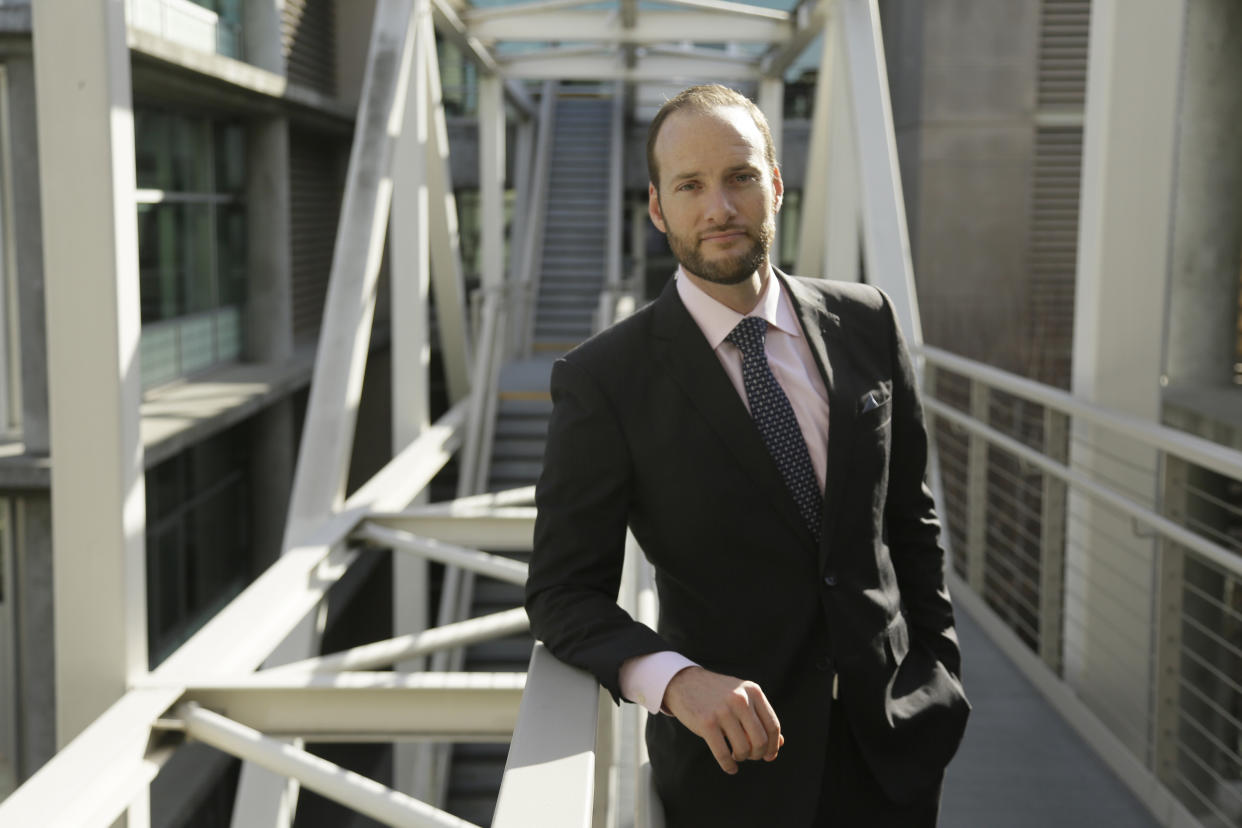
Those promises are increasingly imperiled by rising crime rates across the country, including in every major city. Boudin is facing two separate recalls, which on some days has him sounding like the very type of law-and-order prosecutor he promised he was never going to become.
“I never expected that I’d be able to solve the problems I inherited in my first term in office,” he told me, “much less my first year, much less a year marred by COVID. So we have a long way to go.” The 40-year-old district attorney blamed his political troubles on the police union, “the fearmongers and the Republicans in San Francisco.” Yet it seems unlikely that the 6.8 percent of San Franciscans registered as Republicans are alone in driving the increasingly intense opposition to his tenure.
Philadelphia’s Larry Krasner, probably the nation’s most prominent progressive prosecutor, spent the spring fighting off a primary challenger. His rival was supported by the city’s Democratic establishment, which had refused to endorse Krasner, the incumbent. Speaking a few days before that election, Krasner told me the backlash was nothing more than “Trumpian bullshit.”
He went further, saying that far from being embattled, the progressive prosecutorial movement was just beginning, supported by a society that has become increasingly aware of racial inequalities. “You can see it in the music. You can see it in the movies,” Krasner said. “You can see it in the books. You can see it in popular culture. You can see it in the marches and the discussions that are going on. So there’s a tremendous cultural shift happening here, which is essential for any successful grassroots movement.”
Days after we spoke, Krasner easily defeated his primary opponent, but the challenge to him may have been more revealing than its outcome. Similar efforts are taking place across the country, including one to recall Los Angeles District Attorney George Gascón (who used to hold Boudin’s position in San Francisco, succeeding Kamala Harris). Investigations into ethical lapses have targeted progressive prosecutors in Baltimore and Chicago.
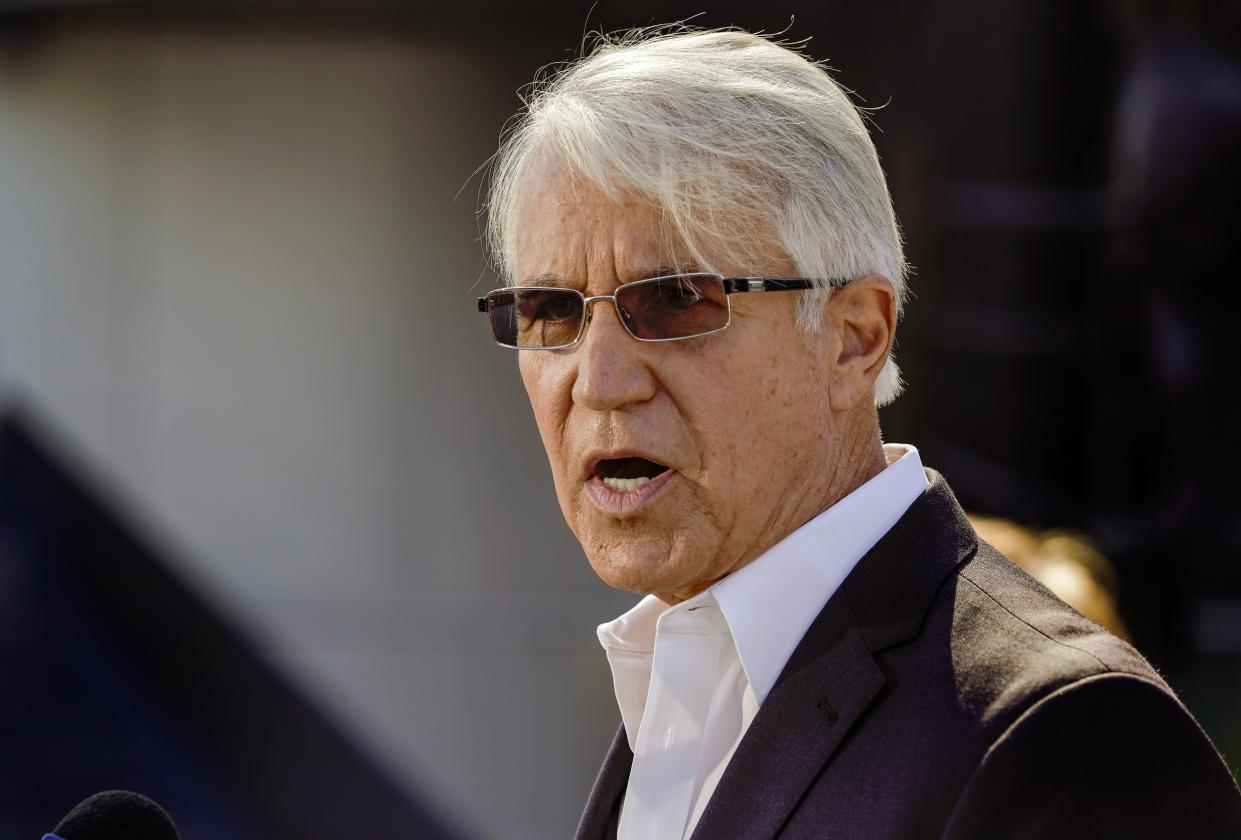
The backlash is not unexpected. “This movement is here to stay,” said Miriam Krinsky, the founder of Fair and Just Prosecution, a Los Angeles-based nonprofit that has boosted many progressive district attorney candidates, including Krasner and Boudin. She noted the recent victories of progressives like Eli Savit in Ann Arbor, Mich., and Ramin Fatehi in Norfolk, Va.
“Communities,” she said, “are smarter about what they want.”

What communities wanted used to be neatly captured by “Law and Order,” the police procedural that started running on NBC in 1990. The top prosecutor on the popular series was based on Robert Morgenthau, the real-life Manhattan district attorney for 35 years, or “the greatest district attorney in the history of New York,” as the show’s creator, Dick Wolf, once called him.
The patrician custodian of an earlier ideal of New York, Morgenthau presided over some of the most famous criminal cases of the late 20th century. He was sometimes criticized for going too soft on white defendants, such as the subway vigilante Bernhard Goetz, and too hard on Black ones, most infamously the five young men falsely accused of beating and raping a woman in Central Park.
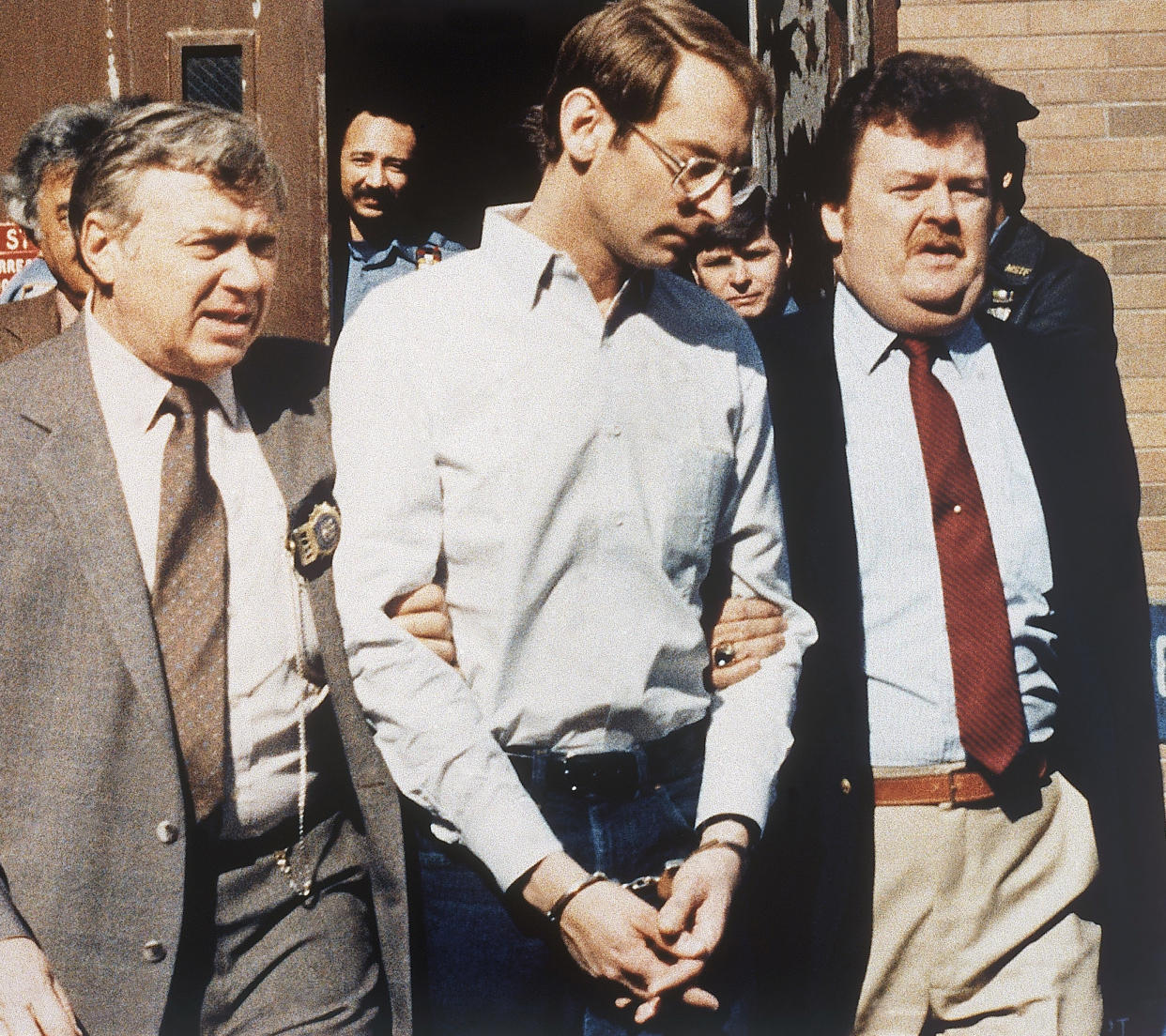
On the whole, New Yorkers liked Morgenthau enough to elect him nine times. Often, he ran more or less unopposed. That changed in 2005, when he received a surprisingly spirited challenge from Leslie Crocker Snyder, then a New York City judge. Snyder attacked Morgenthau from the left, insisting he was “the opposite of a reformer.”
New York was no longer the dangerous and dreary Gotham of Morgenthau’s early years. Other cities had undergone similar changes throughout the 1990s; Washington, D.C., once considered the nation’s murder capital, was on its way to becoming “a cool city.” Vigorous policing, combined with tough prosecution, had paved the way for such transformations, from East Los Angeles to South Brooklyn, as coffee shops and glass-sheathed condominiums replaced empty lots and shuttered storefronts.
Astonishingly, the New York Times — generally more conservative in its approach to local issues than national ones — endorsed Snyder in an editorial titled “When to End an Era.” The editors expressed a concern that “Morgenthau has been very resistant to the kinds of fresh approaches that have improved law enforcement services in other boroughs” and that his “office sometimes seems set in its ways.”

Morgenthau had enough goodwill in reserve to secure 59 percent of the vote, but Snyder’s challenge was a sign that times had changed. Aware that long-reliable winds were no longer blowing in his direction, Morgenthau chose not to seek a 10th term and retired in 2009.
He was succeeded by Cy Vance, who has spent the last decade more or less as a placeholder, unwilling to cast himself as either a lefty crusader or a zero-tolerance lawman. Earlier this year, Vance announced that he wouldn’t run again.

The year Morgenthau retired, so did Philadelphia District Attorney Lynne Abraham, who’d served in that office for 20 years. Throughout her tenure, Abraham was a zealous death penalty advocate, obtaining 108 such sentences. A New York Times profile in 1995 described her as “The Deadliest D.A.”
At the time of Abraham’s retirement, Krasner was a civil rights lawyer who represented victims of police violence. By the time he announced his own run for Philadelphia district attorney, he had sued the department there 75 times. It was an unusual qualification for someone who, if he were to be elected, would be trying the cases those same cops brought him. “We already have one public defender’s office in Philadelphia,” a Republican challenger quipped to the New York Times. “We don’t need the district attorney to be a second.”
Krasner won easily.
Krasner told me that the publication in 2011 of “The New Jim Crow” by Michelle Alexander was a signal moment; he says that until then, he had never heard the phrase “mass incarceration,” despite decades in civil rights law. Krinsky said the movement began in earnest in 2014, when Marilyn Mosby was elected as Baltimore state prosecutor. Two years later, Kim Foxx was elected Cook County's state's attorney in Chicago.
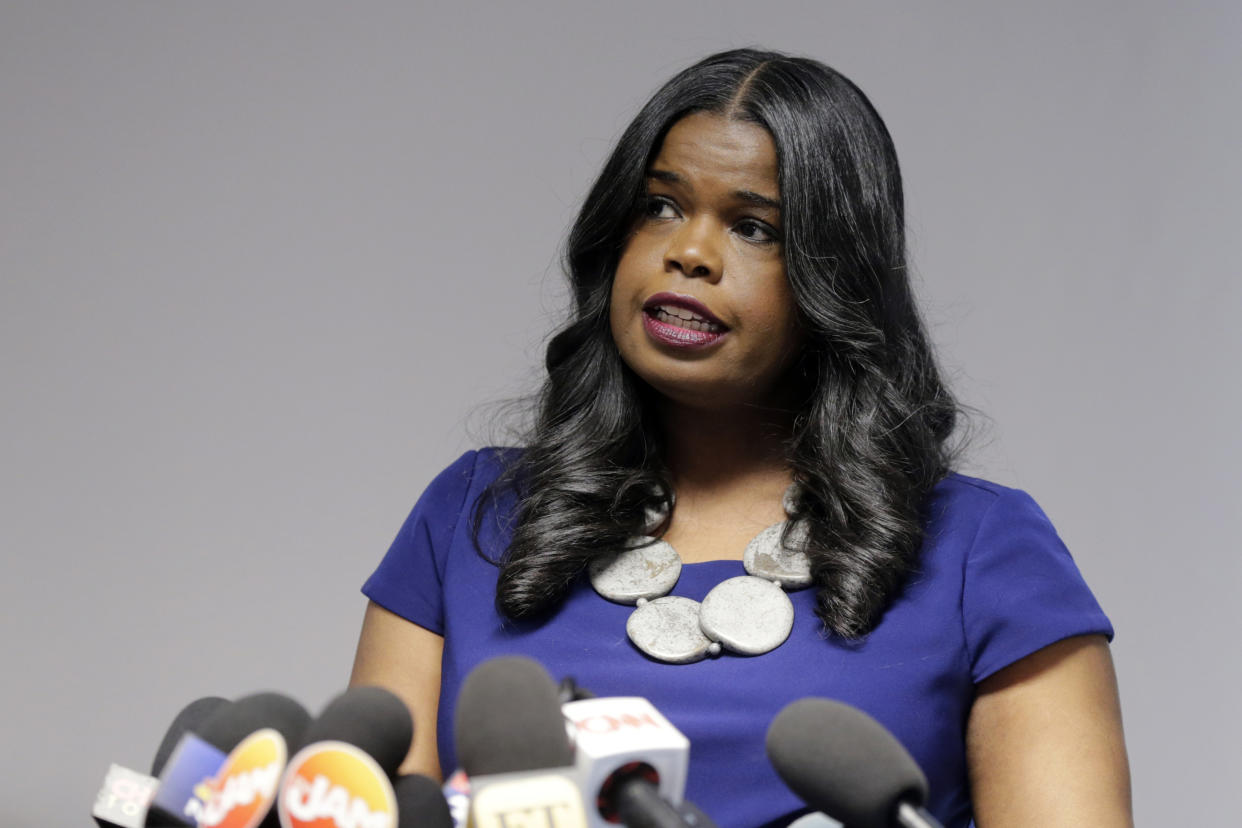
If the media can sometimes overstate developments, this was a genuine movement, one that gained force with the rise of Black Lives Matter and its critique of American policing. That critique is also the central premise of progressive prosecution. In his recent book “For the People,” Krasner denounces the “extraordinary evil and depravity” of some police officers, noting that the serial killer Ted Bundy once sat on a law enforcement commission. As for traditional prosecutors, they have at their worst “supported a fascist fantasy,” Krasner writes.
Critics take issue with such language, joining the fight with rhetoric of their own. Some note that campaigns like those of Krasner and Foxx were funded by the liberal billionaire George Soros. A bête noire of conservatives, Soros has been the subject of both conspiracy theories and antisemitic attacks. In 2019, the National Police Association accused him of bankrolling an “anti-cop/pro-criminal onslaught.”
There is not a “more important civil rights movement in our time” than progressive prosecution, Krasner told me, describing himself and like-minded D.A.s as social justice “technicians” who need to take apart the criminal justice system, then build an entirely new one.
“When I ran my long-shot campaign to be Philly’s chief elected prosecutor,” Krasner writes in his new book, “I promised to try to reverse the damage done by traditional prosecution.”
Back in 1995, Abraham, his predecessor, said this to the Times of the people she’d sentenced to death: “Prison is too good for them. They don’t deserve to live.” (Only three executions were ever carried out.)

Krasner’s discussion of crime victims in “For the People” is circumspect but revealing; he denounces prosecutors who think their job is to act as victims’ “saviors” and laments the “harmful fraud” of prosecution that too zealously seeks punishment and retribution.
That was exactly the kind of prosecutor Abraham had been: “I represent the victim and the family. I don't care about killers,” she’d told the Times. She failed to see that moral certainty was bound to lead to mistakes, as it so often does. Krasner has had 18 people exonerated in his first term.
Yet for all their legal disagreements, Krasner operates with as much certitude as Abraham, at the other end of the spectrum. Her certitude prevented Abraham from perceiving how the criminal justice system treated African American men, but progressive prosecutors' just as strongly held convictions could also lead to a backlash.

Nobody really knows why crime started to rise, and rise dramatically, in 2020, or why it has continued to rise in 2021. Homicides were up in American cities by 33 percent, according to the Major Cities Chiefs Association, accompanied by a 15 percent jump in violent assaults. At the same time, robberies fell 12 percent and rape by 19 percent.
The violent crime was concentrated not only in large cities, but in specific neighborhoods in those cities. Killings like the one of Musyoka, with his touching story, made national news. But most of these murders did not, because they were of, and by, young Black and Latino men whose dispossession in American society has been intractable and persistent.
Progressive prosecutors had promised to redress the ills that had contributed to that dispossession, such as sentencing guidelines from the war on drugs and the lack of services for people leaving prison. The upheaval of the pandemic at first seemed to offer the impetus to accelerate some of those reforms. Boudin reduced San Francisco’s jail population by 40 percent, citing the real risks of transmission of the virus. He earned praise, and was interviewed by Terry Gross on the popular “Fresh Air” radio program.
That was in early April. Homicides had fallen across the nation in the first two months of 2020, but then rose, spiking by the time Gross talked to Boudin in April, before finally peaking in July. A graph of killings from 2017 until the end of 2020 looks like Mount Everest plunked down in the middle of Kansas. The criminologist Richard Rosenfeld called it a “historic increase.”
The rise in crime took place at around the time that racial justice protests erupted around the country. A Princeton study has found that 93 percent of Black Lives Matter-related protests were peaceful, but conservative critics have pounced on the fact that the remaining 7 percent account for 570 instances of violence. Signs of looting were impossible to ignore in large cities like Washington, D.C., and New York, where plywood became the primary storefront decoration.
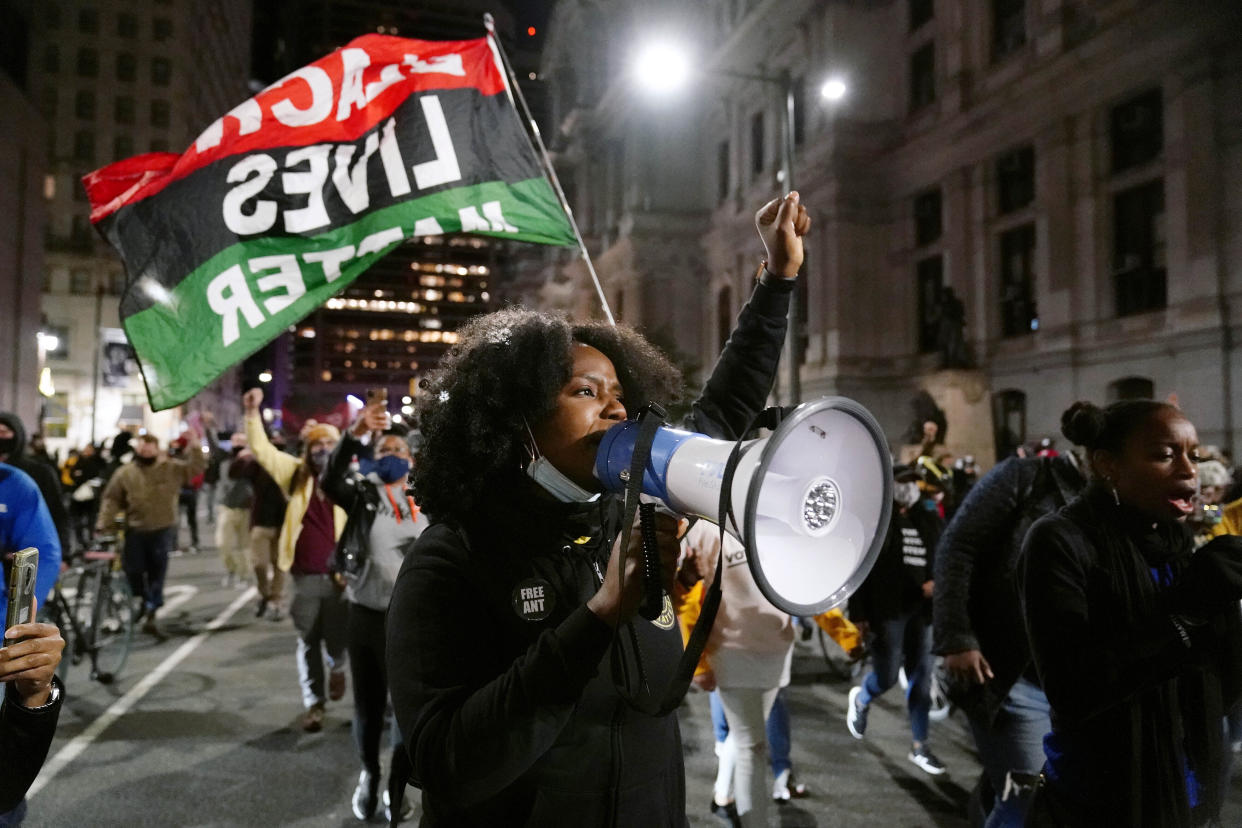
Seizing on an issue that would resonate in the culture wars, conservative media outlets zeroed in on the violence. President Donald Trump’s reelection campaign described the protesters as rioters poised to “unleash a wave of violent crime in our cities.”
As debate raged on social media and cable news about whether a storefront window in Portland had been broken by antifa or by the Proud Boys, young Black and Latino men kept getting shot. In Chicago on June 8 of last year, 18 people were killed in just 24 hours, a grim record that had not been surpassed since the 1960s.
“This is a phenomenon of young people, almost all men, killing young people, almost all men,” Krasner says. He blames the violence on pandemic-related closures. “We have lost open public school, high school classrooms,” he told me. “We have lost organized sports, both in and out of school. We have lost summer camps. We have lost recreation centers.”
The actions of progressive prosecutors “probably did not contribute much to the violence we saw last year,” said Rosenfeld, the noted criminologist. Most people do not get their news from criminologists, but millions tune in nightly to Fox News, where conspiracy theories about George Soros jostle with images of civic disorder.

It was not until the last day of 2020 that the opposition to Boudin in San Francisco coalesced into something of a movement.
As the city was preparing for what was to be a muted New Year’s Eve celebration, given the pandemic, a 45-year-old man named Troy McAlister ran a red light in downtown San Francisco, killing two people.
McAlister had been out on parole, and whether fairly or not, Boudin was blamed for the killings. The San Francisco Police Department issued a withering statement whose target was obviously the young, embattled prosecutor: “We take responsibility whenever we fall short of expectations,” it said. “That’s an approach every element of our criminal justice system needs to embrace.”

In the days following the killings, what had been a quixotic effort to expel Boudin from office entered the mainstream, with help from a local technology executive, David Sacks. “The decarceration disaster unleashed by Boudin in the past year has come about not because decarceration is never the right answer, but because Boudin insists that it is always the right answer,” Sacks wrote in a widely shared Substack article published on Jan. 5. “It also increasingly appears to be his only answer.”
Boudin had won only narrowly in 2019, ousting an incumbent favored by Mayor London Breed. San Francisco politics is contentious, and Boudin had always had his detractors. He could have done more to assuage their concerns, but it probably wouldn’t have made a difference.
A month after the McAlister killings, Musyoka was killed at Lake Merced, and the recall effort intensified. By spring there were two competing recall efforts.
Then came the attacks on Asian Americans, after Trump’s allegations that China had unleashed the coronavirus on the world. In late January, an 84-year-old Thai immigrant, Vicha Ratanapakdee, was slammed to the ground by an assailant who attacked him without any provocation. Ratanapakdee, who had been out for a walk, went into a coma and died.
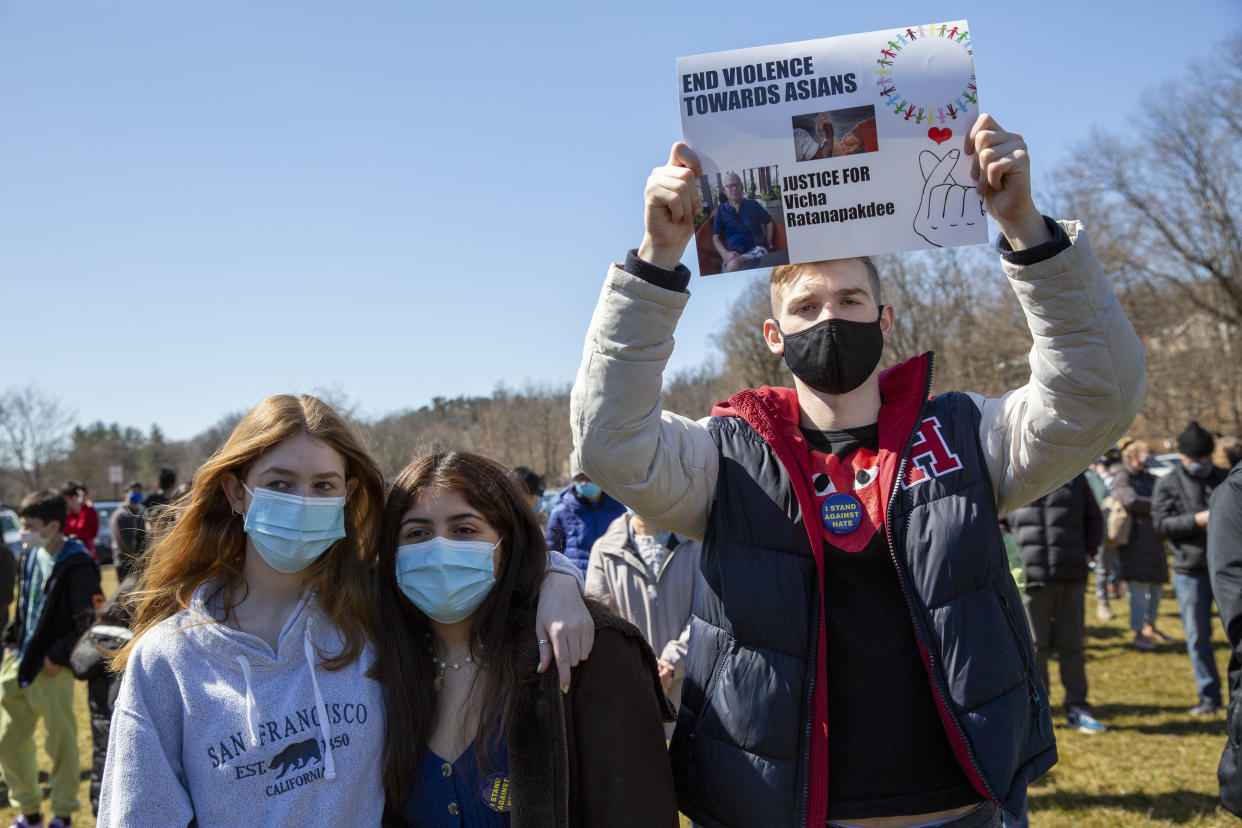
Boudin described the suspect as having been in the midst of “some sort of a temper tantrum.” The comment infuriated some in the Asian American community, although Boudin’s supporters insisted that his statement had been taken out of context.
As violence against Asian Americans persisted, Boudin began to change his approach. After a man was arrested for allegedly stabbing two elderly Asian women, Boudin vowed to appear in court himself for the suspect’s pretrial detention hearing.
I asked Boudin why a line prosecutor couldn’t handle those relatively simple proceedings, especially since the attack had been captured on video. The district attorney’s presence could be seen as a political ploy, a way for him to indicate that he was an ally of the Asian American community.
Boudin objected. “He lets everybody out,” he said of the judge who was to hear the motion.
More recently, Boudin and San Francisco Police Chief Bill Scott made a video in which they stood stiffly next to each other and said in unison into the camera, “Together, we will make San Francisco safe.” A Chinese translation played at the bottom of the screen.
Officials in San Francisco city government were eager to talk to me about Boudin. One of them said the DA’s problems had less to do with the tenets of progressive prosecution than with his own shortcomings. Another showed me the results of a poll, commissioned several months ago, that shows Boudin with only a 26 percent approval rating. Even more troubling for Boudin is that a full three-quarters of respondents in San Francisco’s Chinese community favored a recall.

To be sure, Boudin continues to have support from progressives both nationally and in San Francisco. City Supervisor Dean Preston, one of his allies, told me that Boudin is doing exactly what he was elected to do. He described the opposition as ideological and hyperbolic. Local media have mocked the recall efforts against him as reactionary, echoing the district attorney’s own arguments. And he has supporters in national media outlets, even if the favorable coverage he enjoyed at the onset of the pandemic has more or less vanished.
“Look, the problems in the criminal justice system weren’t developed overnight,” Boudin told me. “This is decades of underfunding education and housing and public health. It’s decades of a failed war on drugs. It’s decades of building more and more prisons and fewer and fewer universities.”
The San Francisco poll conducted a few months ago showed respondents to be extremely concerned about car and home break-ins. Of issues they considered important to them, respondents ranked police misconduct — a focal point for Boudin — last.
Alongside Asian Americans, another group that has emerged as a potential problem for Boudin are survivors of domestic abuse, who can face physical danger if their assailants are not put behind bars. Progressive prosecutors have generally favored no pretrial detention and reduced sentences, putting them at odds with advocates for victims of such abuse.
This spring, a 7-month-old baby, Synciere Williams, was murdered by a man who had twice been arrested on domestic violence charges in recent months. Those charges were dropped by Boudin’s office. After several domestic abuse survivors spoke to a San Francisco Chronicle columnist, Boudin is said to have called advocates to lobby for their support, which only angered them further.
Those advocates were also infuriated by a press release Boudin’s office sent out after the unflattering Chronicle column. The release, one of those advocates told me, appeared to engage in victim blaming, describing how, “in many cases,” a victim of domestic violence “refuses to communicate with the police and prosecutors.”
The release went on to say that some victims of domestic violence “love their assailant and do not want them incarcerated or punished.”
Boudin’s critics have struggled to understand how such assertions help his cause, or the broader cause of progressive prosecution. The poll shown to me by a San Francisco government official offers the following assessment of the district attorney: “Boudin is weak.”

Across the country in New York, voters recently appear to have picked former police officer Eric Adams as their Democratic nominee for mayor, although the final result has not yet been declared. The disparity between Democrats and Republicans is not as steep in New York as it is in San Francisco, but the difference is great enough to mean that winning a Democratic primary more or less guarantees victory in the general election.
Voters seemed to favor Adams despite his history of corruption, his ties to the real estate industry and some strange proposals, including 400-person Zoom classes for public schools. His campaign was singularly focused on crime. In a city that is now seeing gunfights break out in Times Square, that was enough.
As New Yorkers were choosing a mayor, Manhattanites were choosing a replacement for Cy Vance, the outgoing district attorney.
The candidates skewed extremely progressive. During the first debate, a former prosecutor, Alvin Bragg, boasted that he had only ever prosecuted a single misdemeanor. Eliza Orlins ran on a platform nearly identical to Boudin’s. She supported defunding the police, as did several other candidates. Tahanie Aboushi wanted to go after the “root causes” of crime, as Boudin said he would in his victory speech, before more immediate realities set in.
In this field, Tali Farhadian Weinstein stood out for the relative moderation of her views. A onetime clerk at the U.S. Supreme Court, she was in some ways a throwback to Leslie Crocker Snyder, who launched a center-left challenge to Morgenthau back in 2005. But the landscape has shifted since then, and Farhadian Weinstein looked positively conservative in a field so thoroughly shifted to the left.
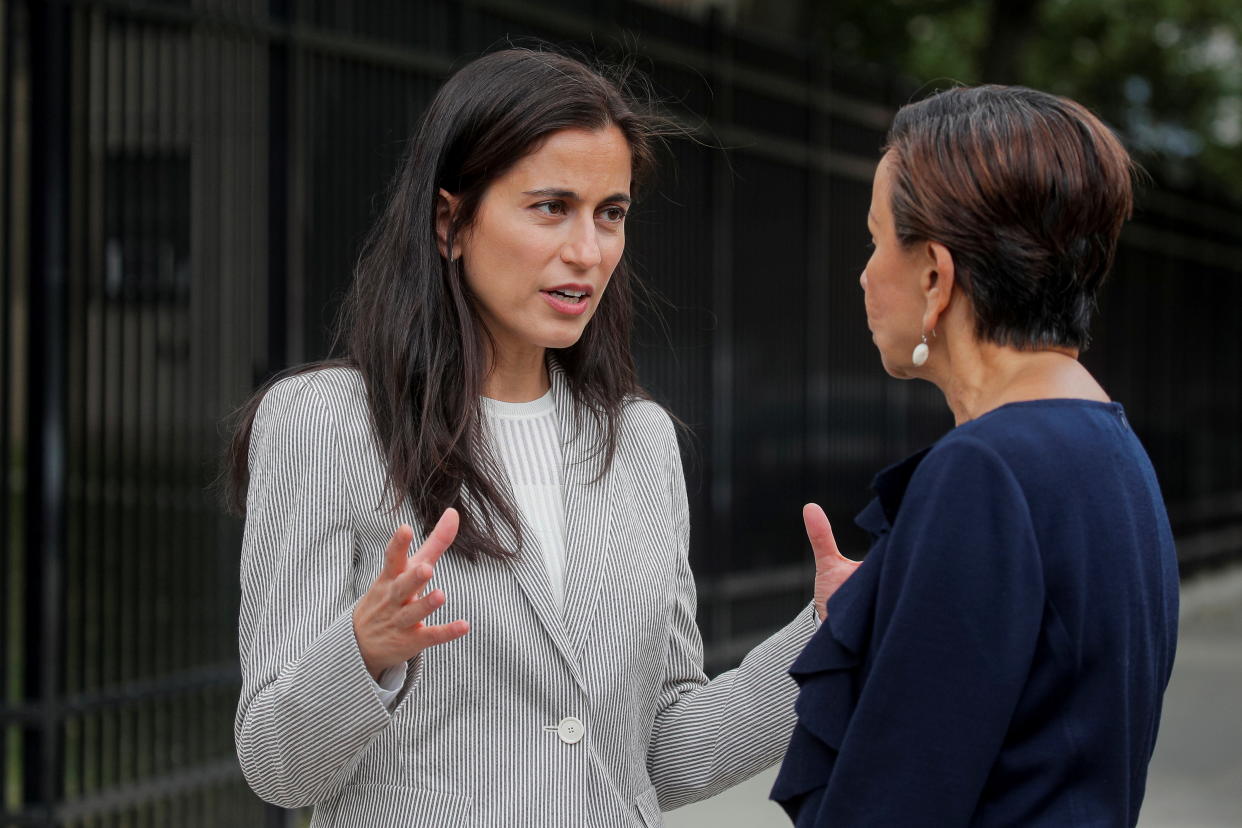
“I think that people do not want to have to choose between safety and fairness,” Farhadian Weinstein told me. “They want both.”
As Election Day approached, progressives sharpened their attacks on Farhadian Weinstein, painting her as an Upper East Side elitist out of touch with the rest of the borough. The same charge could have been made against Morgenthau, but never was, even though he was a scion of wealth and power whose father had been a close adviser to President Franklin D. Roosevelt.
Both of the city’s tabloids, the New York Daily News and the New York Post, endorsed Farhadian Weinstein, and the Post warned that Bragg and the other progressives would usher in an era of “utter chaos and confusion.”
Farhadian Weinstein conceded to Bragg on Friday in the race, meaning that it is possible that New York may end up with a mayor and D.A. with conflicting views on criminal justice. “We’re going to do things a little different in Manhattan,” Bragg told his supporters, as the returns showed him to be a likely victor. That is exactly what some hope and others fear.
____
Read more from Yahoo News:


